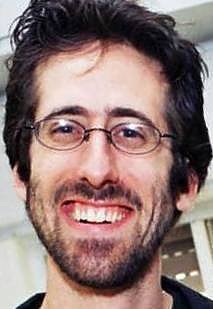Shoftim
Parashat Shoftim is concerned with the structures of governance of biblical society and their just operation: the government and its military, the courts and the religious authorities. Having emerged from the foreign slavery of Egypt and now attempting to maintain the freedom achieved in the Exodus, the parashah is concerned with ensuring the fair functioning of these three institutions. That is, the Torah explicitly limits exploitative possibilities by separating the centers of power and placing constraints that keep these institutions functioning appropriately.
Read MoreNoach
Jewish tradition is famously ambivalent about Noah. While Noah is praised in our parashah as “a righteous man; blameless in his age” who “walked with God,” midrash complicates our understanding. According to Rabbi Judah, Noah was precisely blameless “in his age,” but had he lived in future generations, he would not have been considered righteous. Similarly, while Noah “walked with God,” midrash suggests that this designation is lesser than that of Abraham, who “walked before God.” What then is Noah’s failing and wherein lies the distinction between his character and Abraham’s?
Read MoreDvarim
The Book of Dvarim is the beginning of a transition in the lives of the people of Israel. About to cross over the Jordan to the Promised Land, Moses recounts the laws and life of the Israelites in their wandering in the desert. Moses recalls that the people have been carried by God through the wilderness, fought for by God, shown where to camp and when to move, fed with manna and provided for in every way. Yet in the transition from Moses to Joshua and from wandering in the wilderness to entering the Land, there is a sudden shift in tone. No longer catered to, the people must begin to fend for themselves.
Read MoreMetzora
Parashat Metzora describes the outbreak of “an eruptive plague upon a house” and the series of procedures the owner and priest must go through to check and cure it. The midrash on our parashah suggests several acts that could cause this oddity—a spiritual malady affecting an external physical object like a home.
Read MoreShlach
This week’s Dvar Tzedek was originally published in 2008. In Parashat Shlach, we are told the story of the spies who investigate the Land of Israel before the people enter and settle there. They return and report that though the land is bountiful, the people who dwell within it are strong, terrible and cannot be …
Read MoreMetzora
This week, we are pleased to welcome guest writer, Dvar Tzedek alumnus Rabbi James Jacobson-Maisels. Parshat Metzora describes the outbreak of “an eruptive plague upon a house”[1] and the series of procedures the owner and priest must go through to check and cure it. The midrash on our parshah suggests several acts that could cause …
Read MoreBo
This week, we are pleased to welcome guest writer, Dvar Tzedek alumnus Rabbi James Jacobson-Maisels. In Parshat Bo, when describing the final plague about to be wrought on the Egyptians, God declares: “On all the gods of Egypt I will execute judgment.”[1] The Midrash explains that God is referring to the Pesach sacrifice, in which …
Read MoreYitro
In this week’s parshah, Yitro, we read of the revelation at Sinai that follows last week’s Exodus from Egypt. What is this relationship between freedom and revelation, between Exodus and Sinai? The Chassidic master R. Yehudah Leib Alter of Ger explains that Sinai follows the Exodus because “the purpose of all the commandments…is so that …
Read More
